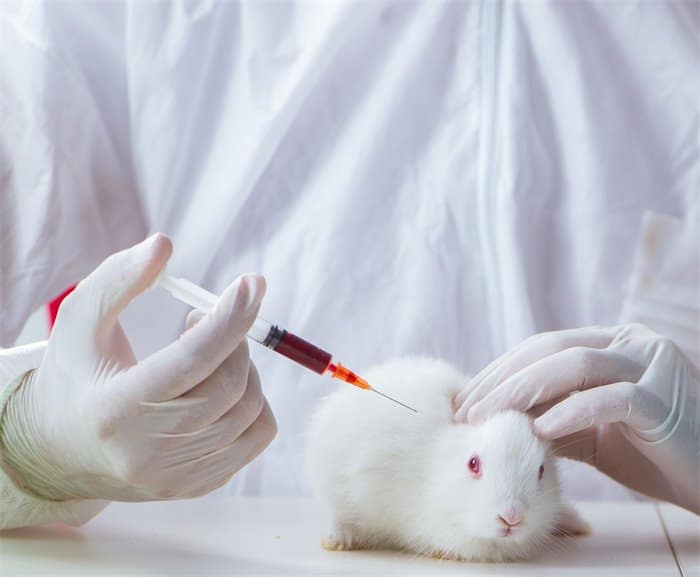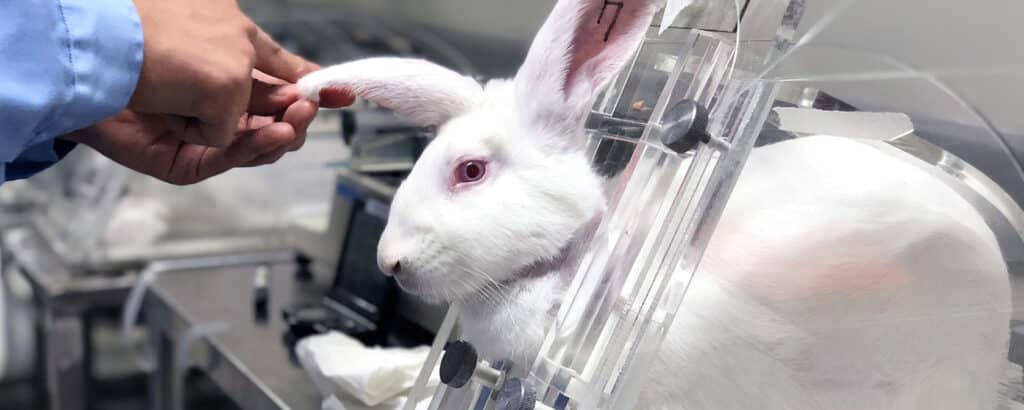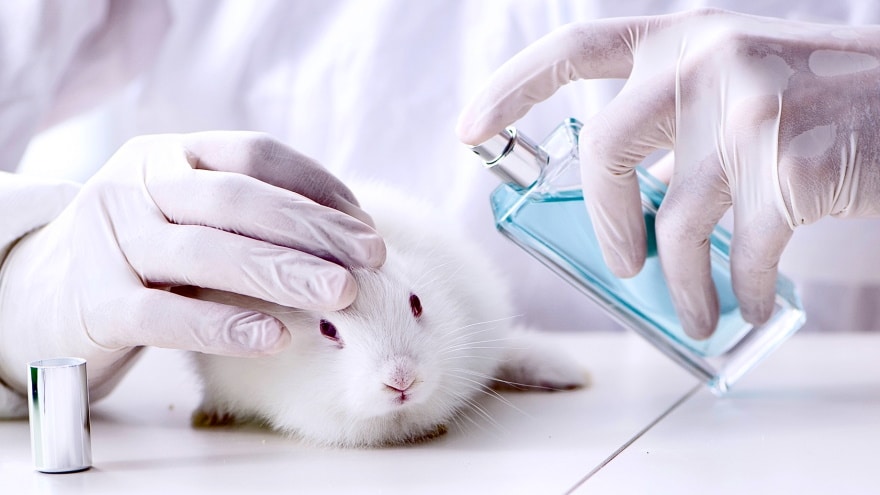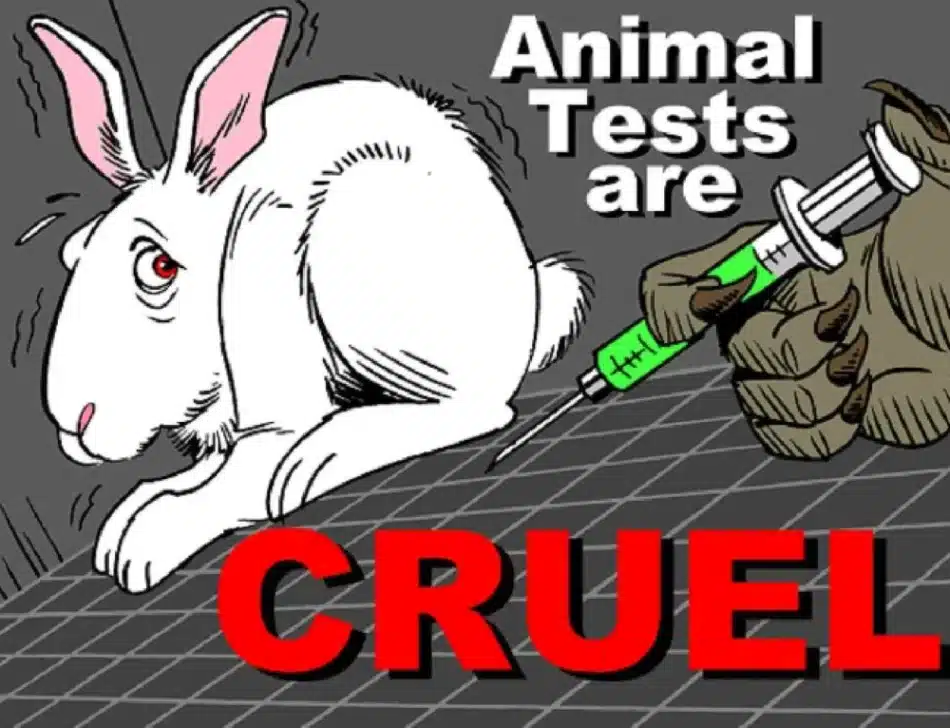More than 35 cosmetics companies band together to oppose animal testing worldwide.

Members of the new International Collaboration on Cosmetics Safety include L’Oréal, LVMH, and P&G. (ICCS)
New animal-free safety assessment methods will be subject to a scientific examination funded by ICCS.
The largest names in the cosmetics industry have joined forces with more than 35 others to promote animal-free testing throughout the world.
Animal protection organisations and cosmetics producers, suppliers, and industry associations make comprise the new International Collaboration on Cosmetics Safety (ICCS).
According to the ICCS, its members, including L’Oréal, LVMH, and Procter & Gamble (P&G), will finance a thorough, scientific review of innovative methods for assessing safety without using animals and will share the findings with regulators of cosmetics and chemicals.
Additionally, it plans to support training and education initiatives to boost public trust in methods for animal-free safety evaluation.
The collaboration’s main goals are to cooperate with already established organisations to

evaluate and continue to develop animal-free safety assessment methods to show their scientific validity for protecting human health and the environment;
Share the findings of these efforts with authorities so they can contribute to global discussions about regulatory approval; and
In order to hasten the widespread acceptance of the most recent animal-free safety knowledge, provide educational and training resources.
Erin Hill, President and CEO of ICCS and co-founder of ICCS member business IIVS, stated that “we have witnessed substantial scientific improvements in the creation, evaluation, and deployment of animal-free approaches for safety assessment in recent decades” (the Institute for In Vitro Sciences).
“ICCS brings together scientists from top organisations throughout the world to build on this momentum and further our shared goal of a world without ingredients or goods that have undergone animal testing.
“ICCS is an international partnership with a focus on animal-free safety science for cosmetics and ingredients, which at the moment confront special difficulties and divergent international standards.
“It is an honour for me to be in charge of the company at this crucial juncture.”
“The safety of the cosmetics and personal care products that consumers use and trust every day is our top responsibility,” stated John Chave, acting board chair of ICCS and director general of Cosmetics Europe.
“Animal testing is not necessary for rigorous and ethical safety evaluations of cosmetics and personal care products, thanks to scientific procedures that have evolved through time.

“As science develops, more needs to be done, and numerous research projects are already under way at ICCS to advance animal-free science methodologies,”
A complete list of ICCS members is as follows: BASF, Beiersdorf, CASIC (the Latin American Cosmetics, Toiletry and Perfumery Association), Chanel, Colgate-Palmolive, Cosmetics Europe, Croda, Cruelty Free International, Edgewell Personal Care, EFfCI (the European Federation for Cosmetic Ingredients), Evonik, Fragrance Creators Association, Haleon, Henkel, Humane Society International, IFF, IFRA (the
Cosmetics and alternatives using animals
While many policies and regulations still require animal test data, the cosmetics and personal care industry has made a significant contribution to the replacement of animal methods for addressing skin irritation, genetic toxicology, eye irritation, and skin sensitization via in silico and in vitro methodologies.
According to ICCS, it seeks to narrow this gap by comprehending regulatory requirements and offering solid scientific solutions based on cutting-edge animal-free methodologies.
It comes amid worries from animal welfare NGOs about instances in the European Union (EU) where, in very rare circumstances, animal tests have been required for cosmetic ingredients to satisfy the requirements of the EU’s chemicals regulation REACH, which exists to ensure human health in the workplace and the environment.
The EU’s policy towards cosmetics has received high praise as the benchmark for abandoning animal testing.
Since September 2004, testing of completed cosmetic goods has been prohibited in the EU.
Throughout order to comply with the requirements of the EU Cosmetics Regulation, animal testing of cosmetic components was outlawed in the EU as of March 2009.
A marketing prohibition went into force in March 2013 to ensure that substances could not be tested anywhere in the globe to comply with the EU Cosmetics Regulation.
ALSO READ THIS: Crypto Analyst Tweets Regarding Increasing Inscription Fees for Ordinals

